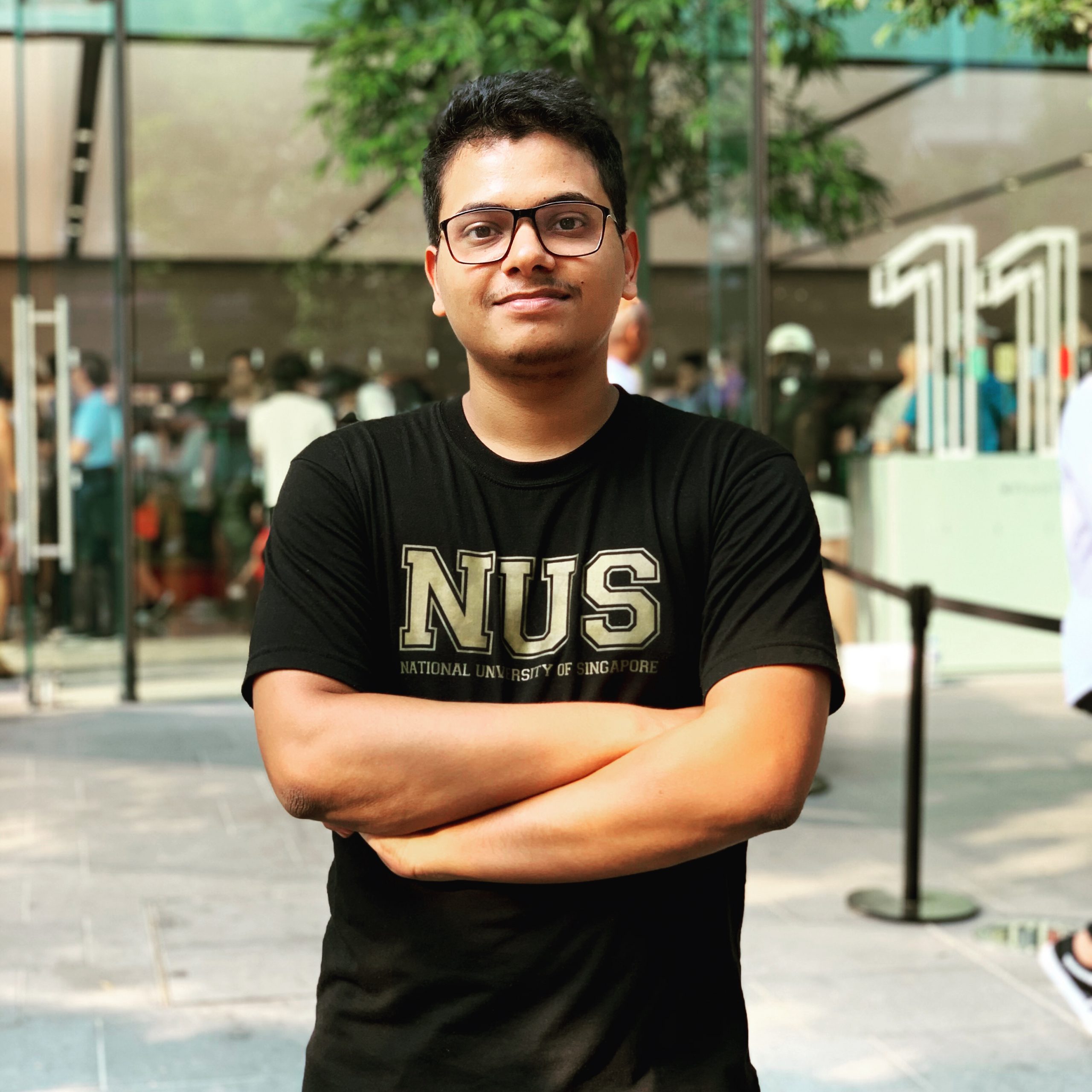Why Did You Choose To Pursue A PhD?
My choice to do a Ph.D. was kindled by my passion to do research as an undergraduate. I developed a keen interest in my area of study and wanted to give it the time and effort to explore further. Additionally, contributing to science — by inventing and innovating scientific ideas — was and remains an immense motivator.
Why Did You Choose To Pursue Your PhD At NUS?
I had explored Singapore as an intern and fell in love with the city. NUS is the best university here and naturally fit into the most desired choice. It is counted amongst the best in the world, and thus posed as a great candidate to perform meaningful and impactful research. I must say – I haven’t been disappointed!
Can you tell us briefly about your research topic?
My research is in Natural Language Processing, where I work towards improving Contextual and Multimodal Affective Computing. My work primarily spans across Emotion Recognition for Conversations, Computational Sarcasm Analysis, and Multimodal Sentiment Analysis.
Why did you choose to do this research for your PhD?
Being a computer scientist, every day we observe innovations pushing the boundaries of technologies. With Artificial Intelligence spearheading in this aspect, I was naturally drawn to this area. In particular, I was excited about gains made in the field of natural language processing (NLP) and the ways it has integrated into our daily lives (Alexa, Siri, etc.). Seeing these broad impacts excited me to take NLP and Affective Conversational Understanding, in particular, as a research topic for my Ph.D.
How does PhD graduate education compare with your undergraduate experience?
There lie vast differences between education in undergraduate vs. Ph.D. As an undergraduate, my primary role was to explore the breadth of computer science and build my foundations in a broad spectrum of topics. However, in Ph.D., there is no definite “syllabus” as you are often charting your own syllabus. Ph.D. also aids in developing not just our technical skills, but our social skills as we have to collaborate with fellow researchers and be able to work with teams in a lab. In other words, a journey in Ph.D. becomes a grand course on developing the way you live and function — improving as a human being and contributing to society through your research.
What do you like most about graduate school?
I have had many cheerful experiences throughout my graduate studies here. Starting from being a student in some courses to teaching in others. Teaching, overall, is an extremely rewarding process and improves your understanding of the subject. I have loved being a TA in my graduate years and interacting with budding engineers and scientists in a big plus.
What challenges have you faced during your stint as a PhD student?
Like all things in life, Ph.D. is not an easy journey. There are ups and well as downs. Often, we have to face the criticism of the community in the work we present. However, these feedbacks are necessary to improve our work and, by extension, improve us to be better scientists and researchers.
Any highlights you'd like to share with us about your PhD life?
Having attended 4 years of graduate life here, I am hugely impressed by the quality of faculty here. We have world-renowned Profs who are eligible to help you in a wide variety of areas.
Can You Tell Us Something Fun About Your PhD Journey In NUS?
Choosing your own timings – Ph.D. is a free-flowing degree, where more often than not, you choose your own work timings. This is an extremely fun aspect of Ph.D. life.
Any advice for someone who's considering a PhD in NUS?
My only advice to a potential Ph.D. student is to choose the area that you “love” working in. You will be committing years of your life into this field, which will potentially define you later in life too. Thus, choosing a field you are passionate about is extremely important.

